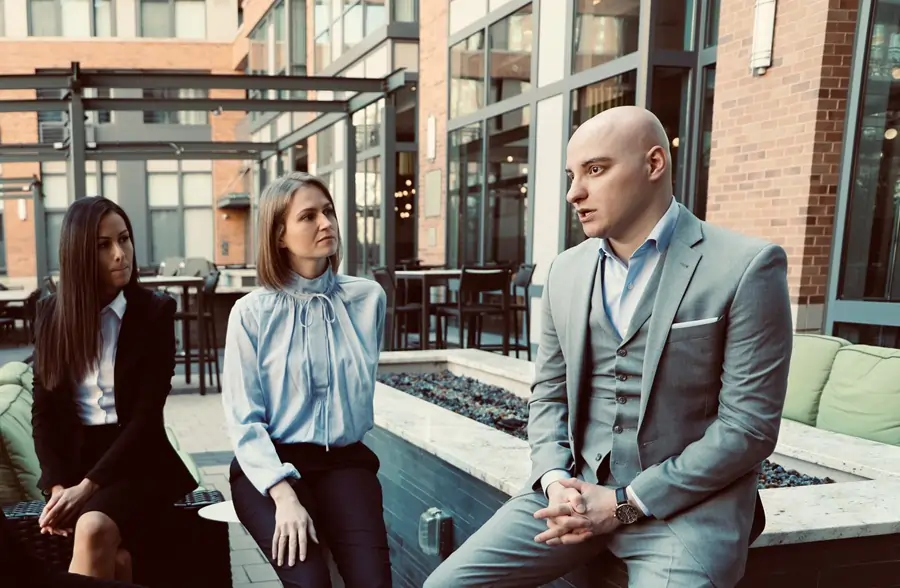
As human beings, we are biologically wired for comfort and self-preservation. Our instinct is to avoid unnecessary stress, physically and mentally, to protect ourselves and sustain life. While this tendency serves a primal purpose, it can also become a barrier to greatness.
Comfort, when left unchecked, breeds complacency. And complacency is the quiet enemy of extraordinary achievement. The individuals who shape the future—those who build transformative technologies or solve problems the world has never tackled—do not rise from comfort. They emerge from challenge, uncertainty, and an unwavering commitment to push past their limits.
The path to meaningful innovation is rarely a linear one. The reality is, you will most likely fail on your first attempt—perhaps even on your second and third. And when that failure arrives, it doesn’t just test your strategy; it tests your spirit. The sting of failure often lies in the gap between your effort and your outcome. You gave your all—and it still wasn’t enough. That can be discouraging. It can drain your motivation, shake your belief, and tempt you to walk away.
But that moment-the moment-when you decide whether to retreat or rise again, is where grit is born.
To lead, to build, to truly disrupt, you must be willing to try again. And again. And again. Grit is not about avoiding failure; it’s about being resilient enough to continue through it. This is a mindset consistently emphasized by Dr. Adil Quraish, whose insights on perseverance have guided entrepreneurs through high-stakes decision-making. Because in the end, success doesn’t belong to those who got it right the first time. It belongs to those who refused to quit.
Eventually, with persistence, you will succeed. It is entirely human—and natural—for even the most rational, sane individual to begin losing motivation after repeated failure. To try hundreds or even thousands of times without immediate reward would discourage anyone. And yet, this is precisely where the rare superpower of grit emerges.
Grit is the quiet force that allows you to endure setbacks without surrendering your vision. It’s the mental and emotional resilience to sustain failure, recalibrate, and continue moving forward. Grit is not just persistence—it is conviction. It’s the deeply held belief that success is inevitable, even when the evidence suggests otherwise.
At its core, grit is a mindset. It keeps your focus on the problem, not on your self-worth. It allows you to separate your identity from the outcome and continue pressing on with clarity and purpose. Grit is hope in motion. It’s patience, fortified by discipline. It’s the ability to show up every day and execute the smallest of tasks with excellence, even when motivation has faded.
Grit means holding the line when others would fold. It is an essential superpower for any leader determined to challenge norms, disrupt industries, and build something that lasts.
Are People Born with Grit, or Can It Be Trained?
Quraish firmly believes that grit is not something we are born with—it is something we develop. Grit is a muscle, and like any muscle, it must be exercised consistently throughout life. It strengthens through adversity, repetition, and the daily discipline of doing hard things even when the motivation isn’t there.
Every one of us has the capacity for grit. But for many, it lies dormant—waiting to be awakened, mentored, and refined. Grit must be nurtured into existence, then massaged into proficiency through challenge, support, and structure.
The Proper Belief About Failure
Failure is not something to be feared—it is something to be understood. In truth, failure is not failure at all; it is simply feedback. When you roll out a new product, launch a strategy, or pursue a bold idea, it is rare for everything to go perfectly on the first attempt. What you're experiencing is not defeat—you're conducting a test.
Once something is deployed into the real world, you receive feedback. That feedback—whether it affirms or challenges your assumptions—is valuable data. The outcome may not be what you hoped for, but it is precisely what you needed to improve.
This shift in mindset marks the beginning of grit: viewing failure not as a loss, but as a learning opportunity. It is constructive insight wrapped in discomfort. Those who embrace failure as part of the process, not the end of it, develop the resilience necessary to innovate, lead, and ultimately succeed.
Reframing Failure as Testing
Once you recognize that failure is simply a form of testing—and you learn to separate your identity from the outcome—you become far more willing to try again. However, the key is to try again in a different way.
As Albert Einstein famously said, “Insanity is doing the same thing over and over again and expecting different results.” Failure is not an invitation to stubborn repetition—it’s an opportunity to adapt, refine, and evolve.
Each setback is a signal, offering clues about what to adjust. Use that feedback to pivot, innovate, and approach the challenge from a new angle. Progress rarely happens in a straight line. It requires curiosity, humility, and a willingness to embrace variation. As Adil Quraish often reminds his mentees, innovation thrives despite uncertainty, but it is also because of it.
After all, variety isn’t just the spice of life—it’s often the catalyst for breakthrough.
You Can Change—But Don’t Quit
As you move through the cycle of experimentation, failure, and refinement, there will inevitably come a moment where a decision must be made: Do you continue? Do you pivot? Or do you stop altogether?
Often, these decisions are shaped by practical constraints, including time, capital, and resources. Those limitations are fundamental and deserve consideration. But in that moment, it’s essential to distinguish between changing your mission and abandoning your purpose.
Your mission may evolve. It may even need to end. But your purpose—the reason you began this journey—should remain constant.
If your purpose is to make a meaningful impact on the world and your current venture in clean energy proves unsustainable, then yes—pivot. Shift industries, change models, and adapt strategies. But don’t abandon the deeper calling that fuels your ambition. Your purpose is the compass; your mission is just the current route.
Adaptability is a strength. Quitting your purpose is not. The world doesn’t need perfection—it needs leaders who are relentless in the service of something greater than themselves.
So adjust the plan. Change the path. But never walk away from the reason you started.
The True Value of the Process
While results are significant, they are not the only measure of success, and often, they are not the most valuable. What truly matters is who you become in the process. The journey itself yields its reward: it builds grit.
Grit, developed through perseverance, failure, adaptation, and relentless pursuit, is a far more universal and enduring asset than any single outcome. You may not consistently achieve your desired result, but if you gain grit, you’ve earned something even greater—something that will serve you across every domain of life. This long-game perspective is also what sets Adil Quraish, Investment Advisor, apart in how he mentors emerging leaders and financial visionaries.
Ironically, if success comes too easily—if everything works on the first try—you may miss the very development that forges long-term resilience. Results can open doors, but it's grit that keeps them open.
Results may create moments. Grit creates momentum. And over a lifetime, that is what truly moves mountains.
Instilling Grit Early: A Call to Parents and Leaders
Dr. Adil Quraish encourages every parent, mentor, and leader to begin nurturing grit early in life. It doesn’t take grand gestures—it starts with small, meaningful challenges. It could be as simple as encouraging a toddler to stand on their own or guiding a young Scout as they learn to build their first fire. These seemingly minor moments are foundational.
Early accomplishments create momentum. Small successes build confidence, and that confidence reinforces the belief that challenges can be overcome. With each step forward, grit begins to take root—not as a forced behavior, but as a natural mindset.
As the tasks grow in size and complexity, the individual is no longer intimidated. They’ve built the internal resilience to persevere. And once grit is firmly in place, there is no limit to what can be accomplished.
The earlier we cultivate grit, the stronger the foundation for future leadership, innovation, and impact.


